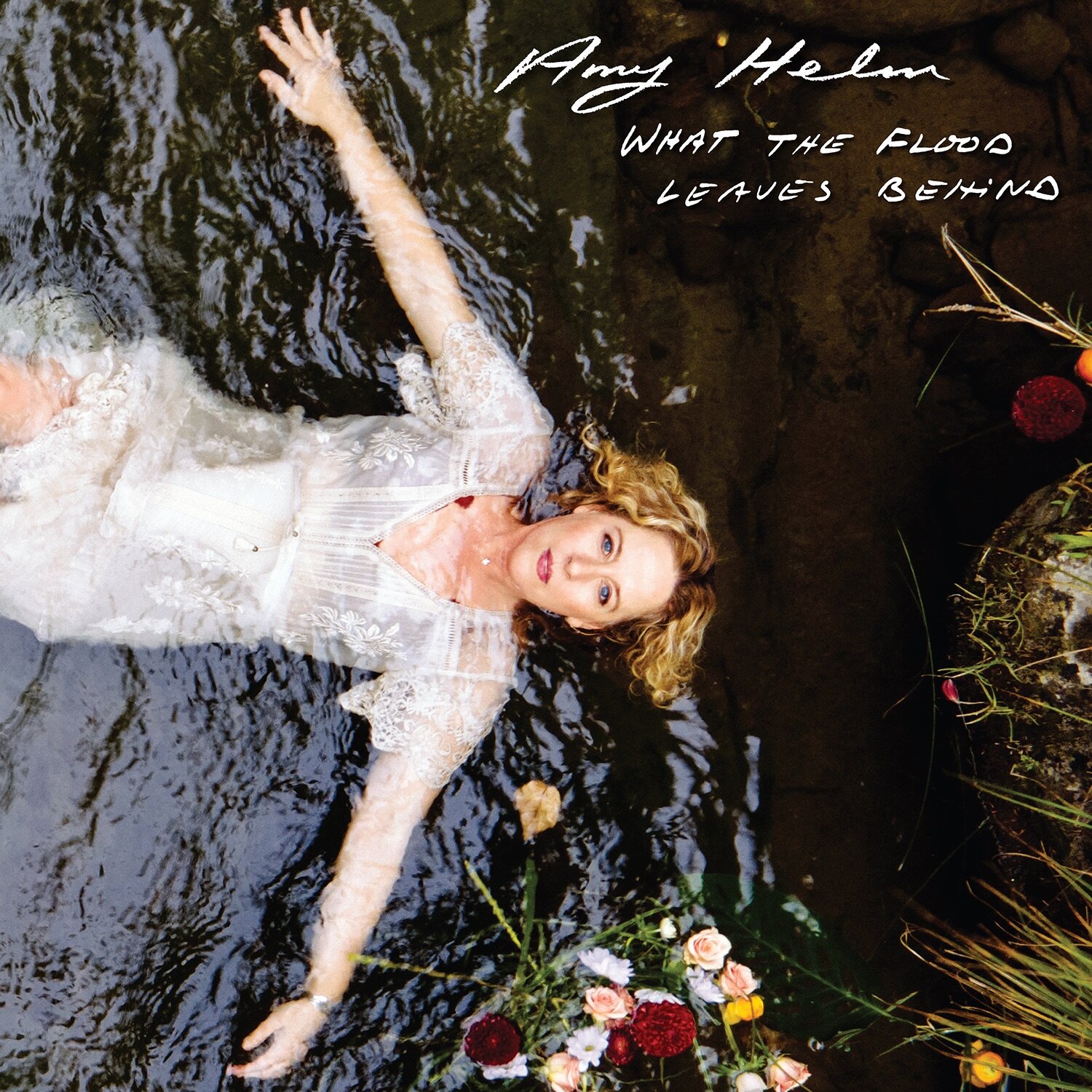Review: Amy Helm Proves You Really Can Go Home Again On 'What the Flood Leaves Behind'
In 2020, a lot of us had to come to terms with spending a lot more time at home than we have become accustomed to. Some of us planted gardens, learned to bake, took up painting, or refinished furniture. In short, we did all of the things our parents and grandparents called “living.” I suspect, more than most, Amy Helm felt the sting of being at home for a year. The songwriter's line between profit and loss is razor thin and a lost year of touring is a major tip toward the loss column. But, like many of us, Helm also found things to do at home; this being her musical “home” of Levon Helm Studios, aka “The Barn,” where she and her father conceived and carried out the Midnight Rambles that defined the last years of that legendary performer's career. What came from it was What the Flood Leaves Behind, out now.
Helm has always had a wide streak of blue-eyed soul to her mix of folk and Americana, and this is on full display throughout What the Flood Leaves Behind. But what's new to Helm's musical bag of tricks is the prevalence of gospel, and especially black gospel, harmonies. While a thoroughly secular album, backing choirs swell above organ melodies in a way that sounds like a tent revival just broke out in the middle of a folk album.
Nowhere is this more apparent than on the album's opener “Verse 23.” A spare solo acoustic guitar strum and folk vocal ushers in the track, written by Hiss Golden Messnger's M.C. Taylor for Helm, before the backing vocals swell up on the chorus, getting more and more prominent as the song moves on. Lyrically, it's a song about acceptance, about making the best of what fate gives you. “What the flood leaves behind, is what we've got to make...”
Another standout track is “Are We Running Out of Love.” While not a political song, it's one that could never have had the impact it does without the last four years, of supremacists, nationalists, mass shooters, and hate mongers wrapped in the flag (or the Bible). There have been plenty of calls for civility in the past few years, but Helm's manages to sound fresh nonetheless. “How long will it take before love can touch everyone? How long? Are we running out of love?”
Helm's ode to her parents and the family and community who raised her, “Cotton and Cane,” has long been a live favorite but here it is the song that most feels like The Barn is an additional instrumentalist in Helm's group. When she belts “my father was a sharecropper's son, handed hope and hymns to ease the pain,” you can almost hear Levon's drum behind her.
Helm and producer Josh Kaufman (who has worked with everyone from Bonny Light Horseman to Taylor Swift) wisely lean into the soul The Barn lent to the music. Often a musician with a famous parent will run from her legacy, desperate to forge her own way without every piece of literature beginning with “...daughter/son of...” That's understandable and Amy Helm has certainly forged her own individual path over the years. But sometimes it's good to come home and, on What the Flood Leaves Behind, the spontaneity, sense of playfulness, and grounding in soul that made all the Midnight Rambles held in that building so special, permeates.

